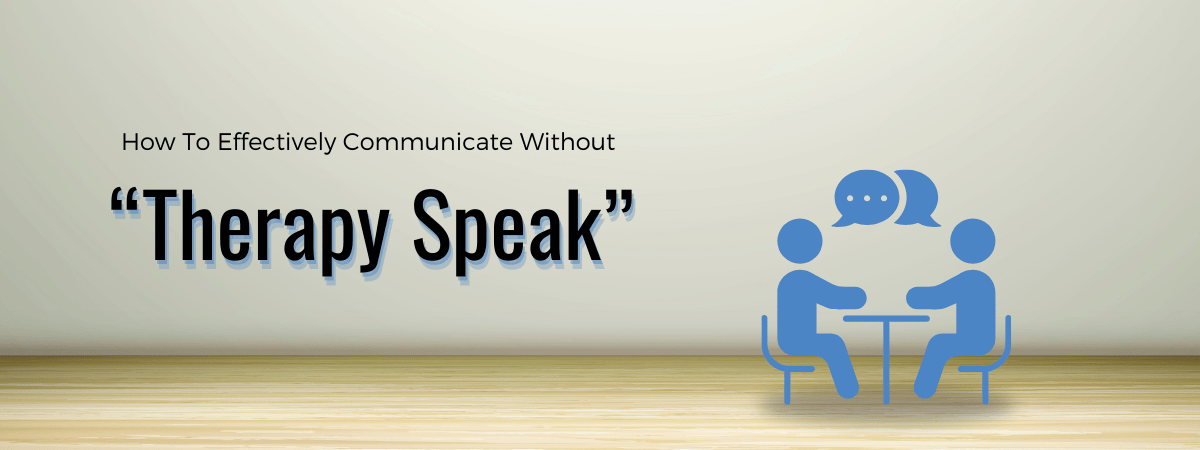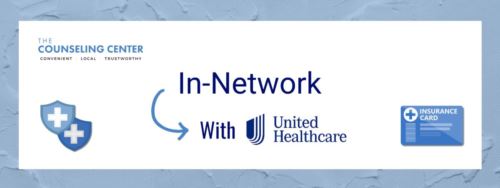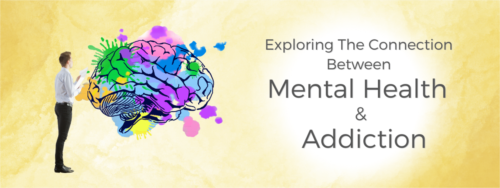

Why You Need To Eliminate Therapy Speak From Everyday Conversations
There’s been an increased emphasis on mental health over the past many years, moving once-taboo topics into public discourse. While this progress is praiseworthy, it has also initiated a phenomenon that can impede genuine discussions: "therapy speak."
This type of language is overused, misunderstood, and stretched beyond its original intent by untrained individuals in daily situations and on modern populist social media like TikTok, Instagram, and more. Find out more about what therapy speak is, how it affects people, and find tips on communicating about mental health treatment in a more productive way.
What Is Therapy Speak?
Therapy speak is the act of employing psychological terminology, often adapted from therapy sessions, in daily discussions. Words and phrases have shifted from professional medical settings and become mainstream in hashtags, headlines, and, even worse, heated arguments between family members.
When these expressions are overused or misapplied in general conversation, they can become a way to avoid more beneficial dialogue and harmfully misread complicated emotions. They may even shut down beneficial conversations with enduring negative repercussions, as people with no experience or credentials could inaccurately diagnose themselves or others they care about.
Here are a few cases of therapy speak:
- “I’m setting a boundary,”
- “That’s triggering for me,”
- “Are you doing the work?”
- “Is it a safe space?”
- “Maybe you’re processing your trauma.”
While these expressions can be worthwhile within a professional surrounding at an accredited facility like The Counseling Center, they are often unsuitable in day-to-day life.
Therapy Speak Can Diminish Real Conversation
At TCC, we encourage the integration of mental health practices into daily life. However, we also recognize the potential disadvantages of adopting clinical or specialized language outside therapeutic settings. Relying on therapy speak can weaken the genuine intent of interactions, forming obstacles instead of nurturing connection and understanding. We’ve noticed people commonly utilize therapy speak as a defense mechanism.
There may be a sense that therapy speak can’t be challenged as it reflects what you could hear in a professional setting. Yet effective conversation depends on empathy, mutual understanding, and active listening.
The Affect of Therapy Speak
1. Eroding Genuine Connections
Relying on therapy speak can make conversations feel transactional or distant, stripping away the emotional warmth that fosters real connection. It might “therapize” family relationships, turning worthwhile candid conversations into what may sound like a 30-second reel generated by a mental health professional on TikTok.
For example, exclaiming to a friend, “I really must hold space for myself right now,” can seem formal and standoffish compared to merely verbalizing, “I’m feeling stressed out and need a little time to process.”
2. Misuse and Misunderstanding
Therapeutic expressions have particular meanings within professional contexts. Improperly using words like “narcissistic” or “trauma” not only minimizes their true intent but can also continue stigma around mental health diagnoses. People try to make a quick diagnosis instead of listening and allowing time for real discussion.
At The Counseling Center, we welcome mindful language that respects the weight of words used in therapeutic settings, ensuring they are not misapplied or weakened in daily discussions. We’ve discovered that therapy speak frequently sows confusion, with numerous terms used improperly. This language might serve as a shield to guard us from guilt, obligation, or judgment.
3. Evading Accountability
While concepts like self-care and boundaries are important, therapy speak can sometimes be misapplied to redirect responsibility or circumvent accountability. For example, saying, “I’m protecting my boundaries,” to explain hurtful behavior can take away from the trust and honesty necessary in healthy relationships. There are always different words to explain self-centered or even antagonistic behaviors. The word “boundaries” has become especially galling to mental health professionals.
You now hear therapeutic phrases utilized when people just don’t wish to do something. Considering all the arguments that result, you might question whether your “boundary” has more importance than your relationship.
How to Communicate Constructively Without Therapy Speak
We feel meaningful dialogue shouldn’t rely on clinical terminology. Instead, it’s about being compassionate, direct, and authentic. Our counselors have some helpful tips:
1. Speak From the Heart
Concentrate on how you feel in lieu of depending on buzzwords when sharing emotions. For example:
- Instead of: “You’re gaslighting me.”
- Try: “Whenever you say that, it makes me feel like my perspective isn’t being acknowledged.”
2. Prioritize Understanding
Seek to listen closely in lieu of labeling behavior. Counterpoints like “Help me comprehend where you’re coming from” promote productive dialogue.
3. Be Mindful of Your Audience
Keep in mind that not every individual is knowledgeable of professional terms. Utilizing simple, understandable language ensures your message resonates more effectively.
4. Use Boundaries Thoughtfully
Boundaries are essential, but they have to be conveyed carefully. Instead of: “I’m setting a boundary.” Try: “I need to step away from this conversation for now so I can think about it.”
Therapy gives you tools, not word-heavy scripts. Counselors at TCC frequently evaluate how you’re using what you’ve learned to make sure it improves, rather than takes away from, your relationships.
How The Counseling Center Fosters Effective Communication
At The Counseling Center, we aim to enable patients with the tools they need to manage their mental health while fostering healthier relationships. Our programs include:
- Individual Therapy: One-on-one sessions to strengthen self-awareness and boost emotional intelligence.
- Family and Couples Therapy: Helping families and partners interact more beneficially and resolve disagreements positively.
- Group Therapy: Offering a safe space for authentic communication in a nurturing setting. Our therapists stress practical, real-life applications of therapeutic concepts, ensuring you can interact effectively with others without relying on jargon.
Request Professional Mental Health Support Today
If you want to deepen your self-awareness and bolster your relationships, we’re here to help. Learn more about our intensive outpatient and outpatient programs. If you need immediate help, please reach out to our 24/7 hotline at 833-248-6271. Together, we can equip you to communicate with clarity, purpose, and empathy—without compromising who you are.



